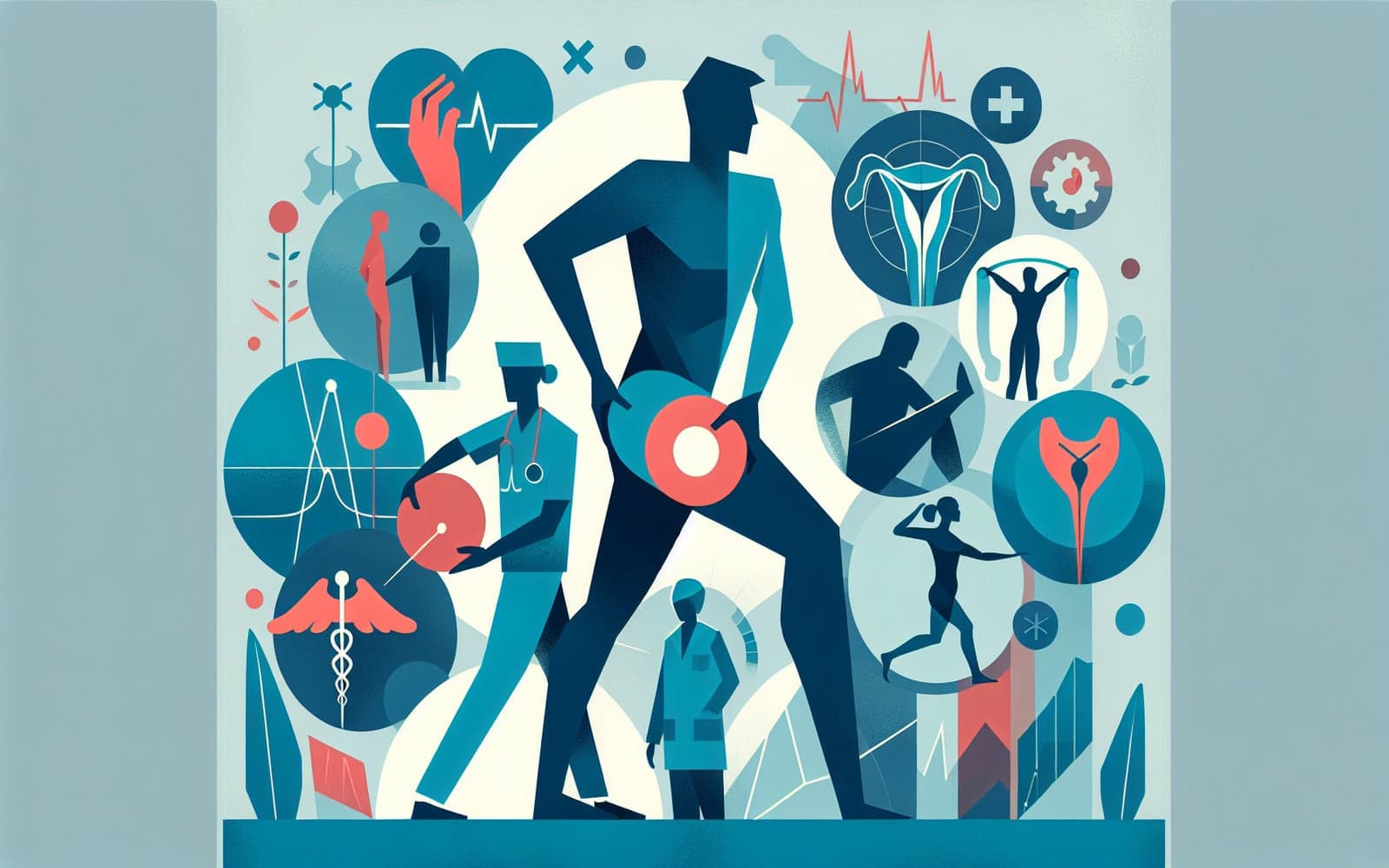What Are Hip Adductor Injuries and Who's At Risk?
Published: Nov 21, 2023
Hip adductor injuries, commonly known as groin strains, are a frequent problem for athletes in sports like soccer and hockey. These painful injuries can sideline players and impact performance.
Contents
What Are the Hip Adductors?
The hip adductors are a group of muscles on the inner thigh that pull the legs together and stabilize the pelvis. The main adductor muscles are the adductor longus, adductor magnus, and adductor brevis. These muscles work hard during activities like sprinting, changing direction quickly, and kicking.
Common Causes and Risk Factors
Adductor injuries often occur during sudden movements that overstretch or tear the muscle fibers. Risk factors include muscle imbalances, inadequate warm-up, fatigue, and previous injury. Sports that involve a lot of cutting and pivoting movements put extra stress on the adductors.

Types and Severity of Adductor Injuries
Adductor injuries range from mild strains to complete muscle tears. Grade 1 strains involve minor damage and typically heal within 1-2 weeks. Grade 2 strains are moderate tears requiring 3-6 weeks recovery. Grade 3 strains are severe or complete tears that may need months to heal and sometimes require surgery.
Frequently Asked Questions
Athletes in sports like soccer, hockey, and football that involve sprinting and quick direction changes.
Proper warm-up, strengthening exercises, and gradual training progression can help reduce risk.
Anywhere from 1-2 weeks for minor strains to 2-3 months for severe tears.
Yes, they account for up to 10% of all sports injuries in some studies.
Key Takeaways
While adductor injuries can be frustrating, proper care and rehabilitation allow most athletes to make a full recovery and return to sport.
If you're experiencing groin pain or suspect an adductor injury, talk to Doctronic about diagnosis and treatment options.Related Articles
References
Lynch SA, Renström PA. Groin injuries in sport: treatment strategies. Sports Med 1999; 28:137.
Tyler TF, Silvers HJ, Gerhardt MB, Nicholas SJ. Groin injuries in sports medicine. Sports Health 2010; 2:231.
Always discuss health information with your healthcare provider.

